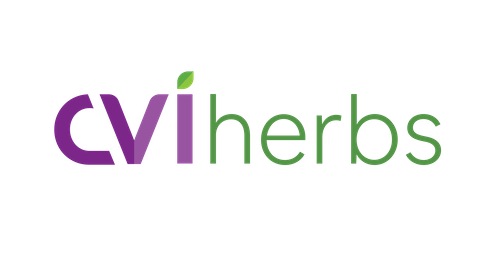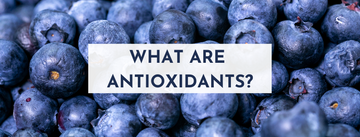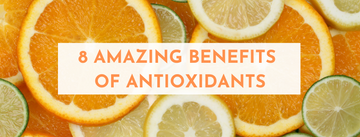Have you ever felt a burning sensation in your stomach or chest after eating? If you have, you might be familiar with acid reflux, a common digestive problem that's affecting more and more people.
I've been dealing with this issue since I was young, just like many others. Over the years, I've learned a lot about what causes acid reflux and what foods cause acid reflux disease.
What Causes Acid Reflux?
Acid reflux, commonly known as heartburn, occurs when stomach acid flows back up into the esophagus, the tube that carries food from your mouth to your stomach.

Source: Acid Reflux Symptoms That Require Immediate Medical Attention
The burning sensation often felt with heartburn happens when stomach acid leaks into the esophagus through a weakened valve called the lower esophageal sphincter (LES).
When the LES doesn't close properly or weakens, stomach acid can escape into the esophagus, causing discomfort.
Several factors can trigger heartburn:
- Common culprits include acidic or fatty foods like citrus fruits, tomatoes, onions, chocolate, coffee, cheese, and peppermint.
- Spicy meals or overeating can also contribute to heartburn.
- Additionally, certain medications like aspirin, ibuprofen, sedatives, and blood pressure drugs can lead to heartburn.
- Smoking cigarettes can relax the LES muscle, exacerbating heartburn symptoms.
- Being overweight or pregnant can also increase the likelihood of experiencing heartburn due to the added pressure on the abdomen and stomach
8 Foods That May Cause Acid Reflux
If you experience acid reflux, you might discover that avoiding certain foods can help manage your symptoms. What food causes acid reflux? Check out 8 foods that may cause acid reflux:
1. High-fat foods
High-fat foods greasy like fries and pizza can cause heartburn. These foods might make heartburn worse by triggering your body to release substances that irritate your esophagus.

Source: High-fat foods to avoid acid reflux
These include bile salts from the stomach and a hormone called cholecystokinin (CCK) in your bloodstream, which can relax the lower esophageal sphincter (LES) and lead to acid reflux.
Studies have shown that more than half of people with GERD find fried and greasy foods appear to have the strongest effects. Removing these trigger foods for two weeks can significantly reduce the occurrence of heartburn.
2. Mint
Including peppermint and spearmint, it is believed to have calming effects on digestion.
However, some studies indicate that mint could actually trigger heartburn. It can lower the pressure of the lower esophageal sphincter (LES), potentially leading to heartburn.
While mint may only affect a small percentage of people with GERD, if you notice heartburn after consuming mint products, it might be worth cutting them out of your diet to see if it helps manage your symptoms.
3. Citrus Juices
Drinking citrus juices or orange and grapefruit juice is known to trigger heartburn symptoms for many people.
While the exact reason for this isn't fully understood, individuals with GERD commonly report experiencing heartburn after consuming citrus juices.
As a result, many people with GERD choose to avoid citrus juices to help reduce their heartburn symptoms.
4. Chocolate
Chocolate is another well-known trigger for heartburn.

Source: You may consider avoiding chocolate if you have acid reflux.
Ingredients found in chocolate, such as cacao and caffeine, have been shown to relax the lower esophageal sphincter (LES) and increase exposure to stomach acid in the esophagus.
Many individuals experience heartburn symptoms after consuming chocolate, and studies have demonstrated that chocolate can lower LES pressure. However, it's uncertain whether removing chocolate from the diet leads to an improvement in heartburn symptoms.
5. Spicy Foods
Fatty or spicy foods are often blamed for causing heartburn, but exactly how they do so is not fully understood.
However, one study found that chili capsules can increase gastric accommodation, where the upper part of the stomach relaxes after a meal.
The same study also discovered that chili capsules caused more severe burning sensations in the belly and worsened heartburn in participants with GERD compared to placebo treatment.
Consuming a lot of spicy foods was linked to a higher risk of heartburn in men, though not in women.
6. Onions
Especially when raw, are a common trigger for heartburn. Like other foods mentioned, onions can cause heartburn symptoms in many people with GERD.
In a study conducted in the 1990s, individuals with heartburn ate a plain hamburger at one time and then an identical hamburger with onions on another occasion.
The results showed that consuming the onion burger significantly worsened heartburn symptoms compared to the no-onion burger.
However, further research is needed to determine whether all individuals with heartburn should consider reducing or eliminating their intake of onions.
7. Alcohol
Whether moderate or excessive, can worsen GERD symptoms, including heartburn.
Because alcohol relaxes the lower esophageal sphincter (LES), which may allow stomach acid to flow back up into the esophagus and cause heartburn.
Additionally, studies indicate that alcohol consumption is a risk factor for GERD.
A review of 29 studies found that individuals who drank alcohol more than five times per week were more than twice as likely to have GERD compared to those who drank infrequently or not at all.
8. Coffee And Caffeinated Beverages
Some individuals may experience heartburn after consuming coffee and other caffeinated beverages. It has been found to relax the lower esophageal sphincter, increasing the likelihood of acid reflux and heartburn.
Additionally, coffee can stimulate gastric acid secretion, further contributing to heartburn symptoms. While not all studies have found a direct link between coffee and acid reflux symptoms, it's important to note that coffee may still cause heartburn in certain individuals.
Other Ways To Relieve Acid Reflux
In addition to avoiding trigger foods, there are several other strategies to help alleviate Acid Reflux:
- Natural ingredients such as turmeric, aloe vera, and licorice root are present in Cumargold.
- Maintain a healthy body weight.
- Consider a lower-carbohydrate diet.
- Avoid lying down after meals.
- Adopt a Mediterranean-style diet, rich in fruits, vegetables, and whole grains.
- Increase your physical activity levels.
- Elevate your head while sleeping.
These lifestyle changes can help manage symptoms of acid reflux.
However, it's important to work with a healthcare professional to develop a personalized treatment plan if you experience heartburn regularly.
In Summary
If you experience frequent heartburn, consider removing some of these foods from your diet to see if your symptoms improve. Keeping a food diary can help you track what causes acid reflux
While avoiding certain foods may help manage heartburn, it's essential to work with your healthcare team to develop a comprehensive treatment plan for managing your GERD symptoms








